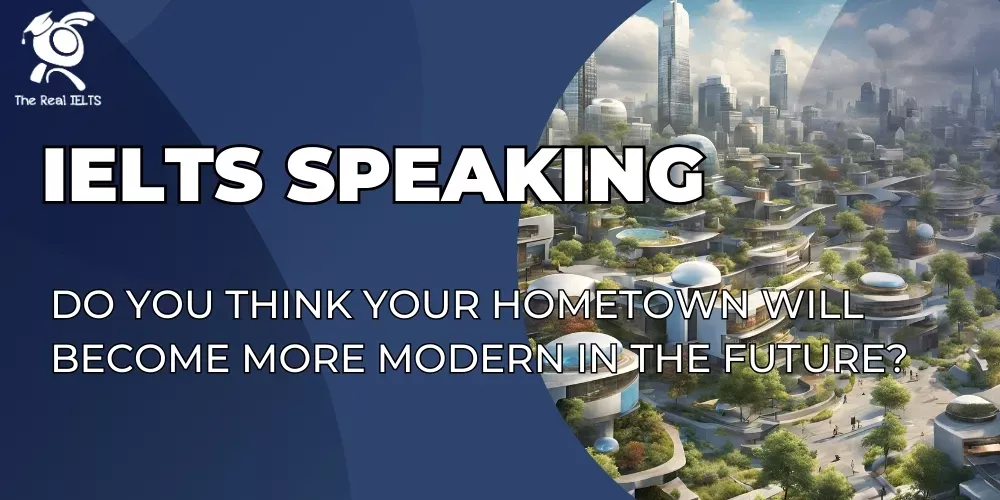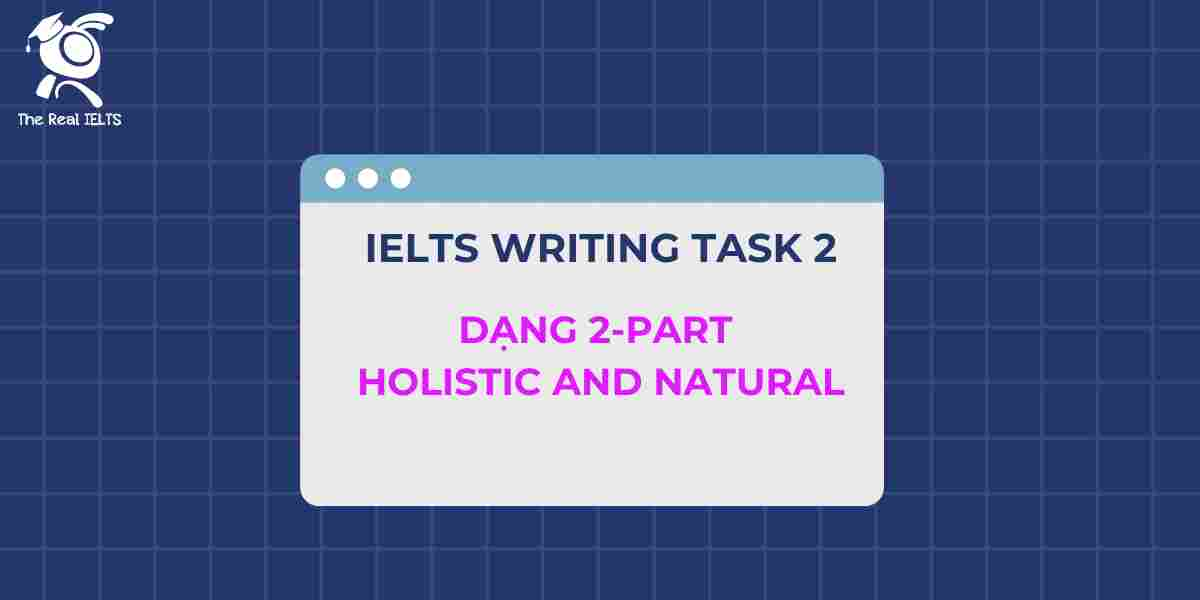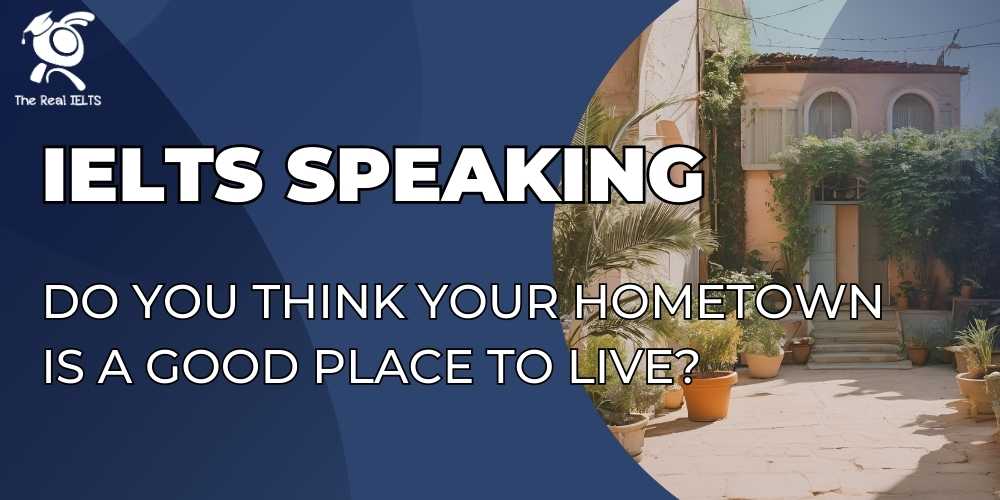Bài viết IELTS Speaking này sẽ dự đoán sự phát triển hiện đại hóa của quê hương, tập trung vào cơ sở hạ tầng, công nghệ, và các sáng kiến hướng đến tương lai bền vững.
Đọc thêm các bài luyện thi IELTS khác.
Đọc thêm câu hỏi khác tại: IELTS Speaking Part 1: Introduction and Interview chủ đề Your hometown.
Đọc thêm: IELTS Speaking: How do people in your hometown feel about the environment and nature?
Câu trả lời cho IELTS Speaking: Do you think your hometown will become more modern in the future?
Ví dụ 1
Yes, I do believe my hometown will become more modern in the future, and there are several reasons why I feel this way. Let me elaborate on a few aspects, including infrastructure, technology, lifestyle changes, and the role of the government.
1. Infrastructure Development
First of all, the infrastructure in my hometown is already improving, and this trend is likely to continue. For instance, the local government has been investing heavily in public transportation, such as new metro lines and more efficient bus systems. They are also working on widening roads and building bridges to reduce traffic congestion. I imagine that within the next 10 or 15 years, the city will have a well-connected and convenient transport network, making it much easier for people to commute.
2. Technology Adoption
Another important factor is the increasing adoption of technology. Many businesses and public services are becoming digitalized. For example, more companies are adopting online payment systems and e-commerce platforms, which are not only convenient but also reflect the growing trend toward a tech-savvy society. Moreover, with the spread of high-speed internet and 5G networks, people in my hometown are more connected than ever. This will pave the way for innovations like smart homes, automated public services, and even electric vehicles.
3. Lifestyle Changes
Alongside infrastructure and technology, I believe people’s lifestyles will become more modern as well. Younger generations in my hometown are highly influenced by global trends, especially through social media. They are adopting new habits such as healthier diets, using fitness apps, and working remotely. This shift will likely drive demand for modern amenities like coworking spaces, gyms, and international cuisine restaurants, which will further contribute to a more modern urban landscape.
4. Role of the Government and Sustainability
Lastly, the local government has been focusing on making the city more sustainable. They’ve introduced policies to encourage green energy and reduce carbon emissions. For example, there are already solar panels on some government buildings, and there are plans to build more parks and plant trees to improve air quality. In the future, I think my hometown will strike a balance between modernization and environmental preservation.
Challenges to Consider
Of course, there might be some challenges, such as balancing urbanization with maintaining the city’s cultural heritage. I hope that as the city develops, it doesn’t lose its unique charm and traditions. For example, I’d love to see the old neighborhoods preserved while still allowing for modern conveniences.
Conclusion
In summary, I am quite optimistic that my hometown will become more modern in the future due to advancements in infrastructure, technology, and lifestyle, as well as proactive government initiatives. While there will undoubtedly be obstacles, I believe that the benefits of modernization will outweigh the challenges, making my hometown a better place to live for future generations.
Ví dụ 2
Yes, I’m confident that my hometown will become more modern in the future, mainly because of its rapid growth and ongoing developments in various areas. Let me explain this in more detail by focusing on a few key aspects.
1. Economic Growth and Urbanization
Firstly, the economy of my hometown is growing steadily, which is a major driver of modernization. New businesses and industries are being established, creating more jobs and attracting skilled workers from other regions. Urbanization is happening at a fast pace, with new residential areas, shopping malls, and office buildings being constructed. Over time, this will transform my hometown into a more vibrant and modern city.
2. Technological Advancements
Secondly, I think technology will play a huge role in modernizing my hometown. With the increasing popularity of smart devices and high-speed internet, many daily activities have become more efficient. For instance, people can now shop, pay bills, or even book medical appointments online. The government is also implementing “smart city” solutions, such as traffic management systems and online public services, which will make life more convenient for residents.
3. Improvements in Infrastructure
Another area where I see significant progress is infrastructure. Over the past few years, there have been projects to upgrade roads, improve public transportation, and expand the airport. I believe that in the near future, we might even see electric buses or trains running in the city. This will not only make transportation more efficient but also reduce pollution, contributing to a greener environment.
4. Changing Lifestyle
Additionally, people’s lifestyles are becoming more modern. Younger generations, in particular, are embracing new trends like eating at international restaurants, joining fitness clubs, and using mobile apps to manage their schedules. They are also more open to ideas like remote working and freelancing, which reflect global shifts in how people live and work.
5. Challenges of Modernization
However, I think it’s important to recognize that modernization might bring some challenges. For instance, as my hometown grows, it could face problems like overcrowding, rising living costs, or even losing some of its traditional identity. I hope that city planners and residents will work together to strike a balance between development and preserving the cultural heritage of the area.
Conclusion
To sum up, I strongly believe that my hometown will become much more modern in the future due to economic growth, technological advancements, and lifestyle changes. While there will be some obstacles to overcome, I’m optimistic that these changes will ultimately improve the quality of life for everyone who lives there.
Ví dụ 3
Yes, I believe my hometown will become much more modern in the future, given the rapid changes I’ve already observed and the plans for further development. Let me break it down into a few key points.
1. Urban Development
To start with, urban development is happening at a remarkable pace. New residential areas are being constructed, old neighborhoods are being renovated, and more modern buildings are replacing traditional ones. For instance, there are plans to build new shopping malls, entertainment centers, and even skyscrapers, which will change the city’s skyline significantly. This urban transformation will make the city look and feel more modern.
2. Advances in Public Services
Another reason I think my hometown will modernize is the government’s efforts to improve public services. They’ve been introducing technology in areas like healthcare and education. For example, hospitals now offer online appointment systems, and schools are equipping classrooms with smart boards and digital learning tools. These advancements will undoubtedly improve the quality of life and bring the city closer to being a modern hub.
3. Adoption of Technology
Technology is another factor driving modernization. Many people in my hometown now use smartphones and rely on apps for shopping, food delivery, and transportation. I’ve also noticed a growing interest in renewable energy sources like solar panels. With these technological advancements, my hometown is moving toward being a “smart city,” where technology plays an essential role in everyday life.
4. Environmental Consciousness
One unique aspect of modernization in my hometown is the focus on sustainability. There’s a strong push for eco-friendly practices, such as using electric vehicles and promoting recycling programs. The city has also started building green spaces, like parks and walking trails, to create a healthier and more balanced urban environment.
5. Cultural Evolution
As modernization takes place, the culture is also evolving. People are becoming more open-minded, embracing global trends, and adopting a more cosmopolitan lifestyle. For instance, you can now find international cuisines, modern fashion boutiques, and events like music festivals that cater to a younger, more diverse population.
Challenges and Hopes
Of course, modernization comes with challenges. There’s a risk that some traditional values or historical landmarks might be overshadowed by new developments. However, I hope the local authorities will find a way to preserve the cultural identity of the city while moving forward.
Conclusion
In conclusion, I’m optimistic that my hometown will become more modern in the future. The ongoing urban development, technological advancements, and environmental initiatives all point toward a brighter and more modern future. At the same time, I hope modernization will be balanced with efforts to maintain the city’s unique character and history.
Ví dụ 4
Yes, I strongly believe my hometown will become more modern in the future, and this transformation is already evident in several areas. Allow me to explain my thoughts in detail.
1. Infrastructure Expansion
The first sign of modernization is the rapid expansion of infrastructure. In recent years, new highways, bridges, and public transportation systems have been built. The government has announced plans for even more projects, such as expanding the metro system and introducing electric buses. These improvements will not only make the city more accessible but also give it a modern and organized appearance.
2. Economic Growth
Another factor driving modernization is the local economy. My hometown is attracting more investors, especially in the technology and service sectors. For example, new industrial parks and office complexes are being developed to accommodate growing businesses. This economic activity will likely create more job opportunities and draw in people from other regions, making the city more dynamic and forward-looking.
3. Smart City Initiatives
Technology is playing a crucial role in the city’s transformation. There’s a growing trend toward smart city initiatives, such as digital traffic management systems, public Wi-Fi zones, and online government services. These innovations are making life more convenient and efficient for residents. In the near future, I can imagine my hometown adopting advanced technologies like AI and the Internet of Things (IoT) to improve urban management.
4. Lifestyle Evolution
People’s lifestyles are also changing significantly, reflecting a shift toward modernity. For instance, younger generations are adopting trends like dining out at modern cafes, shopping online, and joining gyms or yoga studios. These lifestyle changes are pushing local businesses to cater to a more urbanized and globalized population, which is another sign of modernization.
5. Environmental Awareness
Interestingly, modernization in my hometown is closely tied to sustainability. There are efforts to reduce pollution by promoting electric vehicles and renewable energy. Public parks and green spaces are being developed, providing a refreshing balance between urbanization and nature. I think this focus on eco-friendly practices will ensure that modernization doesn’t come at the expense of the environment.
6. Challenges to Overcome
While I’m optimistic, I recognize that modernization comes with challenges. For instance, as the city grows, there may be issues like overcrowding, higher living costs, or even a loss of cultural identity. However, I believe that with careful planning, these challenges can be managed effectively.
Conclusion
To sum up, I’m confident that my hometown will become much more modern in the future due to ongoing developments in infrastructure, technology, and lifestyle. While challenges exist, I’m optimistic that modernization will ultimately lead to a better quality of life for everyone.















